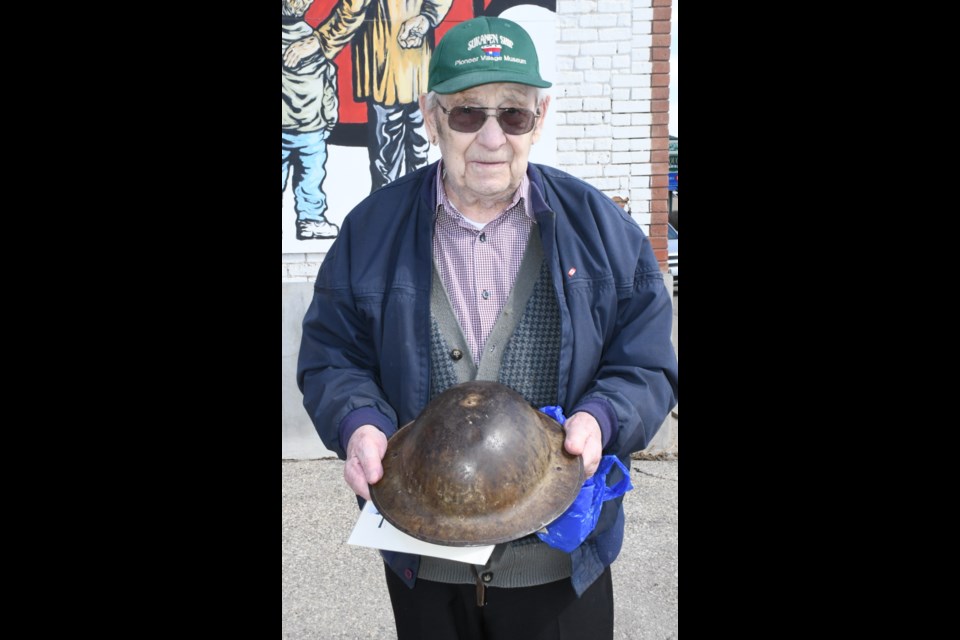A helmet from the First World War holds special meaning for Vern Mittelholtz, whose father wore the battle gear during several major Great War battles including at Vimy Ridge and Hill 70.
The helmet has been in the family since Edmon Francis Mittelholtz returned from Europe in late 1917 after being discharged from the Canadian Expeditionary Force. Mittelholtz was born on May 10, 1896, in West McGillivray, Ont., and later moved west to Saskatchewan where he worked as a farmer, according to his attestation paper. The document listed his next of kin as his mother, Elizabeth.
He enlisted in Saskatoon on Dec. 18, 1915, and was attached to the 96th Battalion (Canadian Highlanders). The 92nd Battalion (48th Highlanders) later absorbed the 96th Battalion in 1916. The 92nd —a unit that was noted for the kilts its soldiers wore in the trenches — fought in several major engagements during the First World War, including at Vimy Ridge from April 9 to 12, 1917 and later in August 1917 at Hill 70, of which Mittelholtz took part.
“He never talked to us about war, but if a First World War veteran came over, we would lay in bed and listen to the stories he would talk about with the other veteran,” son Vern, 95, said recently. “Our bedroom was right next to the living room, so we heard everything that went on.”
One story Vern heard was how members of the Salvation Army were the only ones to visit Edmon’s battalion while in England. Edmon, recalled Vern, thought highly of those people over the years.
While Vern couldn’t recall a specific story his dad told about fighting at Vimy Ridge, he does remember his father talking about Hill 70. The Canadians attacked on Aug. 15 and captured many of their objectives, including the high ground. They then held their positions against 21 determined German counterattacks over the next four days.
The Canadians lost more than 9,000 soldiers at Hill 70 but killed or wounded an estimated 25,000 Germans.
“He (Edmon) said after the slaughter at Hill 70, after the Newfoundlanders were slaughtered and he had to crawl through the corpses, the only reason his unit got up the hill was because the Germans ran out of ammunition. That was his story,” recalled Vern.
Edmon also talked about the kilt he and his men wore while in France. Vern recalls his father saying that as soon as the unit arrived in the trenches, they removed the kilts because they became so full of mud that it was impossible to move.
The Great War veteran was discharged in late 1917 and came back to Saskatchewan, where he moved to Aylesbury — northwest of Chamberlain — and became a garage mechanic. The federal government later offered him some land, an offer he gladly took up. That property is still in the Mittelholtz family today.
Holding the helmet, Vern pointed to a noticeable dent on the top of the headgear. That dent, Vern remarked, happened after his father was hit by a piece of shrapnel while fighting at Vimy Ridge.
“It (the helmet) means a lot to me. I can’t let it go. It’s going to one of my sons in the army. It’s not going out of the family,” said Vern, who attempted to enlist in the army during the Second World War but was denied since he was a little too young.
Vern has never visited Vimy Ridge in France and, he added with a chuckle, is now too old to visit the places where his father fought in some of Canada’s most important First World War battles.




